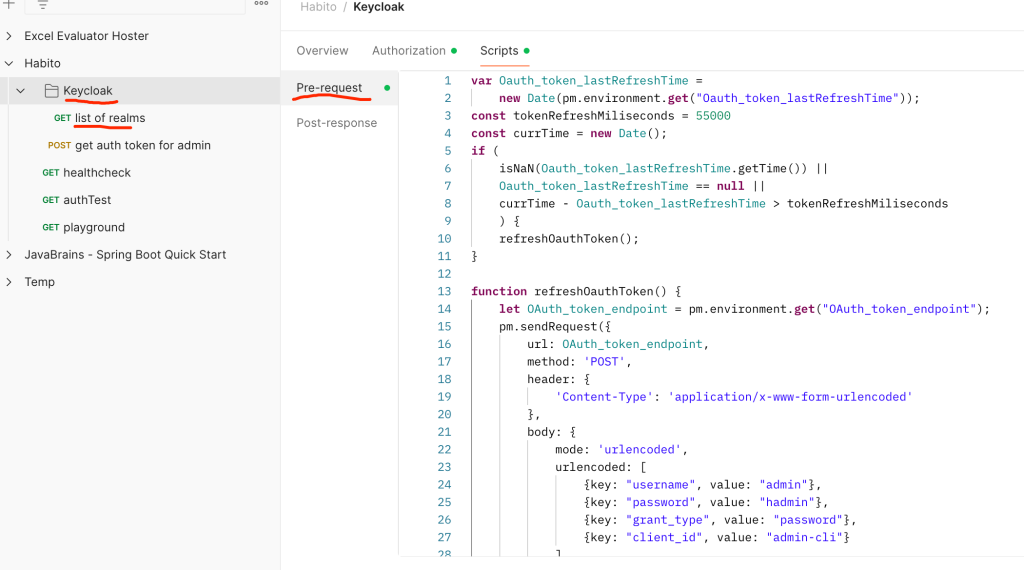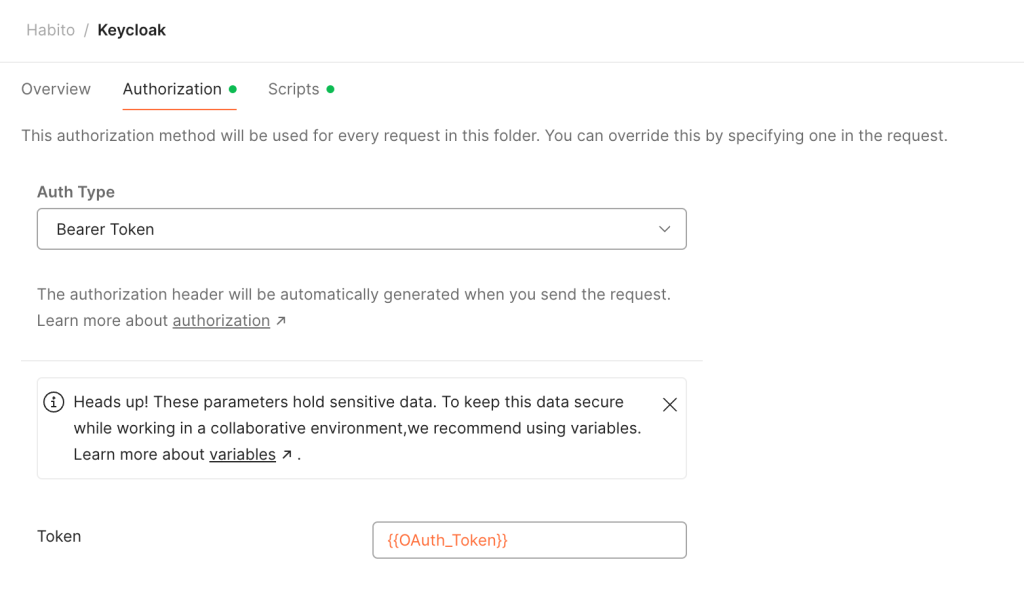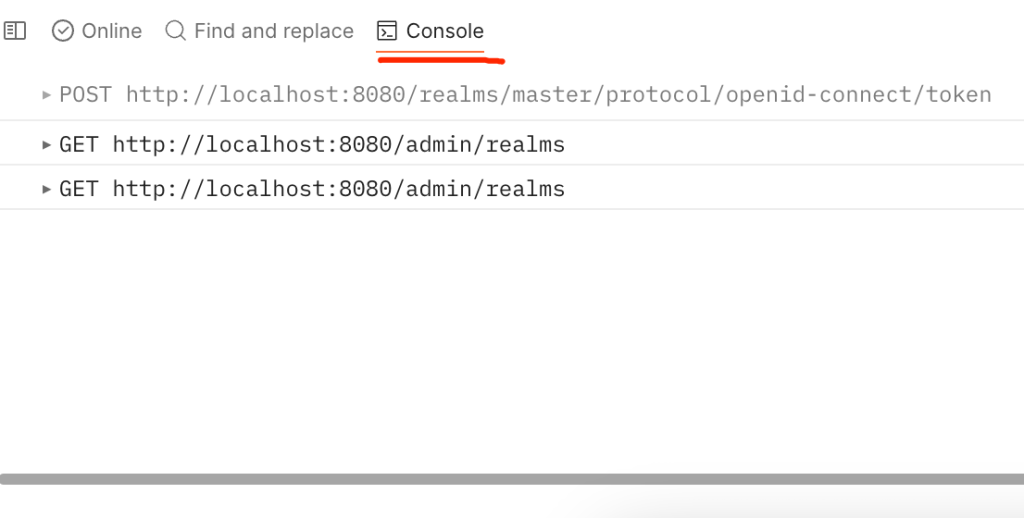How to auto-refresh OAuth 2.0/Bearer token in Postman (Keycloak example)
Context
I am setting up Keycloak for a pet project and for automation purposes I wanted to use their Admin REST API. It took me a bit of time to find out how to get the token for authorization and then I was surprised that Postman does not offer an off-the-shelf auto-refresh solution. As Keycloak tokens expire after 1 min, I realized I had to find a solution for testing.
After digging a bit I found that this could be solved easily with Pre-request scripts. Postman gives the option to execute Javascript pre- and post-request and using javascript it is possible to call the authorization endpoint and save the token.
In my example, I am applying the script for a folder, meaning that every request in that folder will execute it when required (sidenote: make sure you save your folder before you try! I spent quite some time debugging why it doesn’t work when it just wasn’t saved).
Preparation
The only thing you need to prepare is an environment in Postman and define five variables in it
| OAuth_Token | No need to define. Will store the actual token which will be referred to during authorization. |
| OAuth_token_endpoint | The endpoint where the token is refreshed. |
| Oauth_token_lastRefreshTime | Timestamp of when the token was last refreshed. |
| Oauth_username | In my example, I needed a username and password to get the token and for best practice, I stored them as environment variables. |
| Oauth_password |

How-to
Setup auto-refresh
I have a folder called Keycloak (of course, in your example you can have any folder) and inside that folder I have a request called list-of realms. In the Pre-request part, add the following Javascript code:
var Oauth_token_lastRefreshTime =
new Date(pm.environment.get("Oauth_token_lastRefreshTime"));
const tokenRefreshMiliseconds = 55000
const currTime = new Date();
if (
isNaN(Oauth_token_lastRefreshTime.getTime()) ||
Oauth_token_lastRefreshTime == null ||
currTime - Oauth_token_lastRefreshTime > tokenRefreshMiliseconds
) {
refreshOauthToken();
}
function refreshOauthToken() {
let OAuth_token_endpoint = pm.environment.get("OAuth_token_endpoint");
let Oauth_username = pm.environment.get("Oauth_username");
let Oauth_password = pm.environment.get("Oauth_password");
pm.sendRequest({
url: OAuth_token_endpoint,
method: 'POST',
header: {
'Content-Type': 'application/x-www-form-urlencoded'
},
body: {
mode: 'urlencoded',
urlencoded: [
{key: "username", value: Oauth_username},
{key: "password", value: Oauth_password},
{key: "grant_type", value: "password"},
{key: "client_id", value: "admin-cli"}
]
}
}, function (err, res) {
if (err) {
console.log(err);
} else {
pm.environment.set("OAuth_Token", res.json().access_token);
pm.environment.set("Oauth_token_lastRefreshTime",currTime);
}
});
}This code
- gets the last time of refresh from env. variable
- if it’s empty, not a date, or older than 55.000 ms (55 sec), it refreshes the token
- gets the endpoint from env. variable
- calls the auth endpoint with the required headers and the body
- saves the token to an env. variable

Setup authorization
This is quite simple, select the Bearer token, and for the token itself, refer to the environment variable as {{OAuth_Token}}. Keep in mind, that if you are doing how I did it (defining it on the folder level), then in the request itself you need to define authorization as “inherit Auth from parent“.

How to test
In the console (bottom-left in Postman) you can see the outgoing requests. I called the /realms endpoint twice: the first time it triggered the token refresh before the call itself, and the second time it didn’t refresh it at all. If it doesn’t work for any reason, you can use the arrow to open the request for more details.



